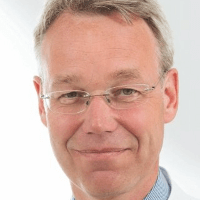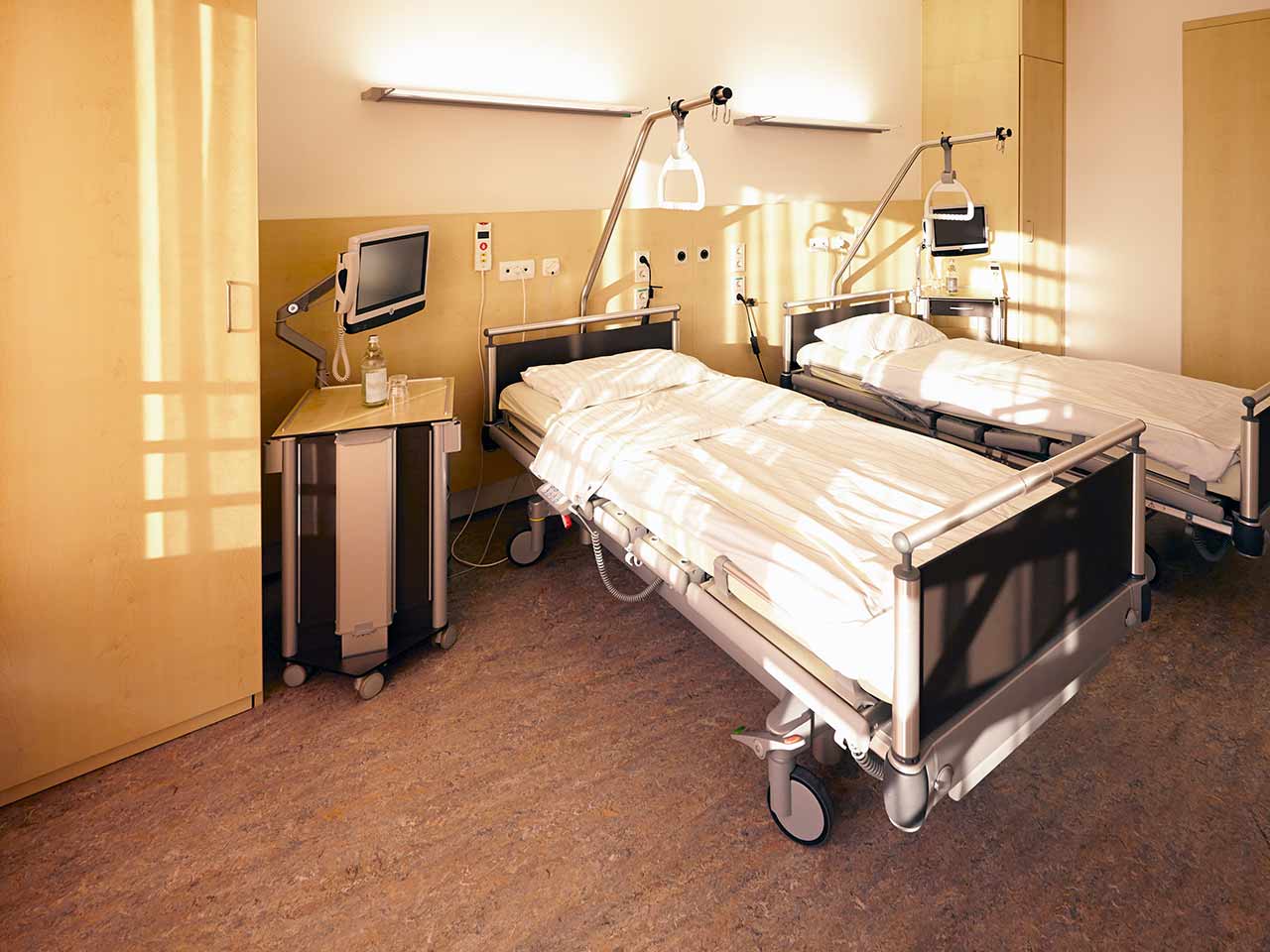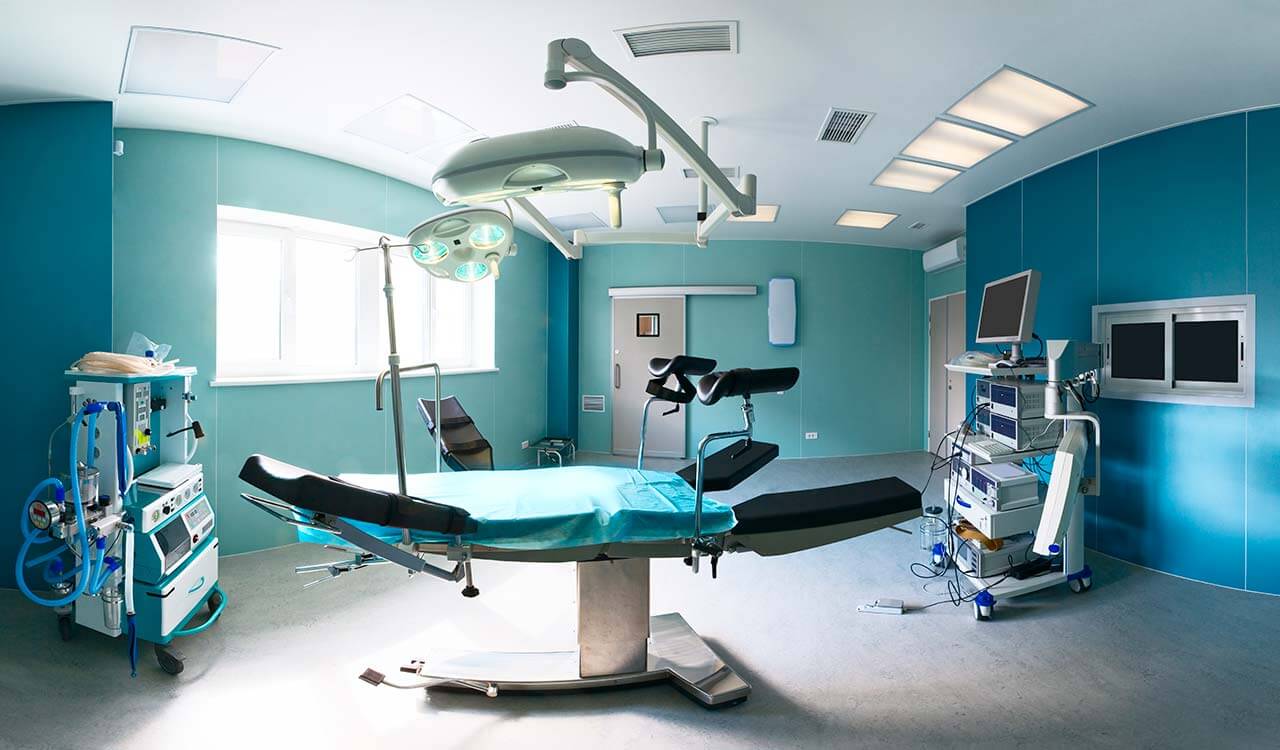
About the Department of Cardiology at Helios Hospital Hildesheim
The Department of Cardiology at the Helios Hospital Hildesheim provides all the options of modern medicine for the diagnostics and treatment of various cardiovascular diseases. The patients with myocardial infarction and acute coronary syndrome receive medical care in the Chest Pain Unit certified by the German Cardiac Society. In addition, the department has a modern Cardiac Catheterization Laboratory, which performs catheter assessment of the state of the myocardium, heart valves and coronary arteries, as well as interventions for coronary artery stenosis (balloon dilatation and stent implantation). The department's cardiologists are distinguished by their successful experience in radiofrequency catheter ablation for the treatment of cardiac arrhythmias. The specialists of the medical facility annually admit more than 4,000 patients, so the patients can be sure of the exceptional professionalism of cardiologists and the effectiveness of medical care. The department is headed by Prof. Dr. med. Juergen Tebbenjohanns.
The progressive Cardiac Catheterization Laboratory provides the full range of diagnostic procedures to assess the condition of the myocardium, heart valves and coronary vessels. Such tests involve the use of a catheter (a flexible and hollow plastic tube with a small diameter), which is introduced into the vascular flow through a puncture in the femoral artery and moves along the aorta to the heart chambers. The use of a contrast agent allows the doctors to obtain the images of the coronary arteries and reveal stenosis or obstruction in them. The therapeutic procedures are also successfully performed in the Cardiac Catheterization Laboratory – percutaneous transluminal coronary angioplasty and stent implantation. Heart rhythm disorders (arrhythmias) are treated with drugs or radiofrequency catheter ablation. Radiofrequency ablation is performed using a thin flexible guiding catheter, which is inserted through a puncture on the femoral artery and gradually moves towards the pathological focus in the heart, which causes the arrhythmia. A radiofrequency pulse is supplied through the guiding catheter, which irreversibly destroys the pathological tissue area. Radiofrequency catheter ablation is indicated for the patients with atrial fibrillation, atrial tachycardia, atrial flutter, life-threatening ventricular arrhythmia, premature ventricular repolarization syndrome, etc.
State-of-the-art Chest Pain Unit serves for the treatment of patients with acute coronary syndrome and myocardial infarction. Since September 2017, the unit has been certified in accordance with the standards of the German Cardiac Society, which confirms the highest level of quality of the services provided. The Chest Pain Unit is equipped with systems for electrocardiography and other tests to assess the condition of the heart. After the diagnostic examination, cardiologists provide a complex of therapeutic measures aimed at normalizing the patient's condition and preventing irreversible pathological changes. The patients in a severe condition remain in the department's specialized Intensive Care Unit.
The department's range of diagnostic and therapeutic services includes:
- Diagnostic tests
- Echocardiography
- Transthoracic echocardiography
- Transesophageal echocardiography
- Stress echocardiography
- Electrocardiography
- Spiroergometry
- 24-hour blood pressure monitoring
- Electrophysiological tests
- Cardiac MRI
- Diagnostic cardiac catheterization
- Echocardiography
- Therapeutic techniques
- Drug therapy
- Catheter procedures
- Percutaneous transluminal coronary angioplasty
- Coronary artery stent implantation
- Radiofrequency catheter ablation
- Left atrial appendage closure
- Emergency cardiac care
- Other medical services
Curriculum vitae
Higher Education and Professional Career
- 1983 - 1989 Study of Human Medicine at the Heinrich Heine University Duesseldorf and at the Rhenish Friedrich Wilhelm University of Bonn.
- 1989 - 1996 Preparation for board certification in Internal Medicine at the University Hospital Bonn.
- 1996 Senior Physician in the Department of Cardiology and Angiology at the Hanover Medical School and Senior Physician at the Working Group on Rhythmology at the Hanover Medical School.
- 1998 Managing Senior Physician.
- 1998 Foundation of the "Discussion Group on Rhythmology in Hannover".
- 1999 Habilitation.
- 1999 Board certification in Cardiology.
- 2002 Professorship.
- 2002 Chief Physician of the Department of Cardiology at the Helios Hospital Hildesheim.
- 2004 Deputy Representative of the "Arrhythmia" Working Group of the German Cardiac Society (DGK).
- 2006 Deputy Medical Director of the Helios Hospital Hildesheim.
- Since 2006 Head of the "Rhythmology" Training Course of the German Cardiac Society (DGK).
- 2007 Representative of the "Pacemaker and Arrhythmia" Joint Working Group of the German Cardiac Society (DGK).
- Since 2015 Medical Director of the Helios Hospital Hildesheim.
Photo of the doctor: (c) Helios Kliniken GmbH




